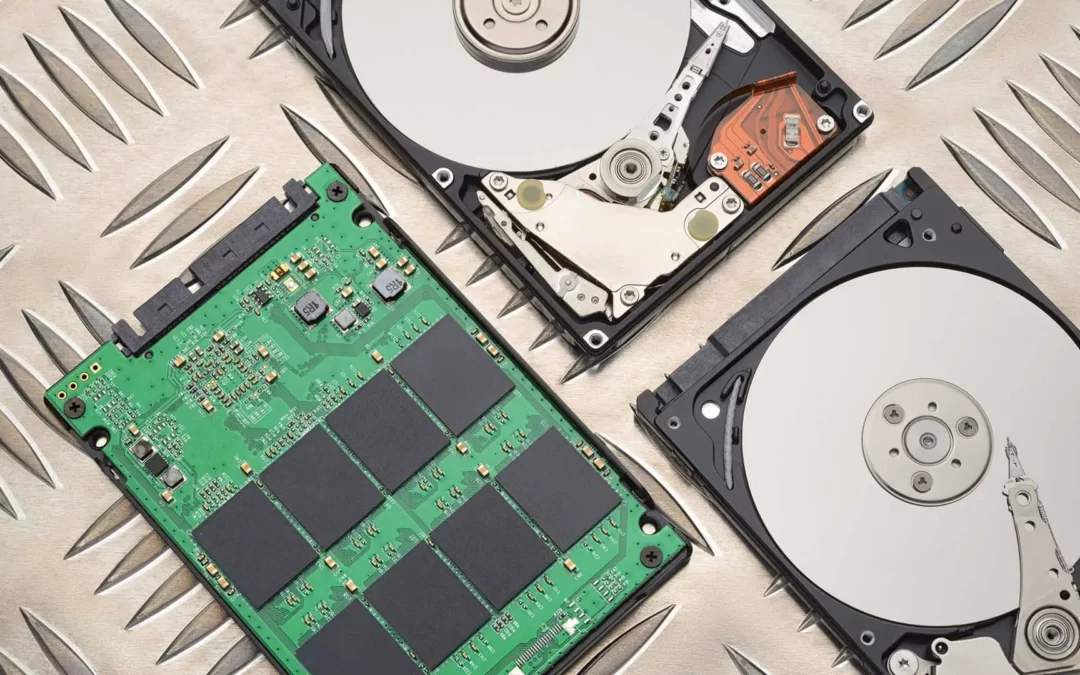As time goes by, more and more providers are pushed by the overall industry competition to provide cheap cloud hosting solutions. Naturally, HDD-based dedicated server services have become quite popular.
In the same time, cloud hosting reliability is increasingly perceived as a non-negotiable feature of all cloud services out there. And for a good reason. Our habits are moving online. We daily find new ways to digitally cover our personal and collective needs.
In this context, it would be completely inefficient to push the pendulum towards low-cost cloud solutions, in the expense of reliability.
Naturally, SSD Dedicated Server offerings remain a solid, well-rounded cloud hosting solution for businesses worldwide.
Let’s see how SSD Dedicated Servers are the obvious solution for optimal reliability and long-term value-for-money.
Data-Based Comparison Between SSD and HDD
SSD Dedicated Server Offerings are Generally Pricier
The price difference between SSD-based and HDD-based cloud hosting services is evident if you take a look at the storage components.
Overall, the cost of an SSD gigabyte is 116% to 225% more expensive than an HDD gigabyte. This is a very significant cost difference.
Essentially, if you are in need of a cloud hosting solution with very high storage capacities, then SSD cloud solutions will be very expensive and could potentially challenge the project’s viability.
However, if you need a well-rounded service for cloud computing, then the value-for-money of SSD dedicated server offerings is higher, as you will see below.
SSD Dedicated Server Solutions are Significantly Faster
Typical random access times to a requested file take 0.1ms for SSD storage. Compare that to the 6-12ms an HDD needs for the same action. Impressively, SSD storage is 5900% to 11900% faster than HDD storage.
This has an accumulating effect, since when running an application numerous files need to be accessed from a database. This translates to a 5900% to 11900% faster access for every file of the database that is needed.
Of course, for simple applications and low-intensity cloud computing, it is not easy for the human perception to experience the difference between 0.1ms and 12ms. In this case, it would make sense to stick to HDD-based hosting, because there is a change you would not notice the speed difference.
However, if a project demands complex configurations with numerous databases and applications and intense computing workloads, an SSD-based dedicated servers would be the only realistic way forward.
SSD Storage Requires Less Energy Consumption
SSD-based storage consumes 225% less power than HDD-based storage. This has two benefits;
When cloud hosting providers determine their pricing policies, they naturally take into account the energy consumption of the IT infrastructure. As a result, while SSD storage is generally more expensive, the cost related to energy consumption would be lower.
Additionally, lower power consumption of SSD dedicated servers provides an eco-friendly solution for cloud computing.
As societies are trying to halt or reverse the effects of global warming, it is possible that proactive and aggressive measures will be adopted. One of these ideas is taxing high energy consumption. In this context, it would not be unexpected to see the HDD products being excessively taxed in the near future.
While not certain, it is possible that this kind of taxation could eliminate the only advantage of HDD-based cloud hosting, which is the low cost.
SSD Storage Fails Way Less Frequently than HDD Storage
A solid-state disk (SSD) has a lifespan of about 10 years. A hard disk drive (HDD) can only go on for 3-5 years. This translates to additional replacement costs for your business, over the long term.
Lifespan is not the only factor though. Regardless of a disk’s lifespan, other factors can cause unexpected failures. A research team in the University of Toronto, studied SSDs over a multi-year period. They witnessed that SSDs need to be replaced 25% less frequently than HDDs.
This proves that SSDs can both boost the reliability of your business and reduce costs that are created in the form of unexpected failures.
Do I Need an SSD-Based Dedicated Server?
This depends on the configuration, architecture and use-case of your project. We advise going for an SSD Dedicated Server if one of the following conditions are true:
- Need for High-Availability (At Least 99.99% Uptime Record)
- Big / Numerous Databases
- Complex Configuration (Application Based on Numerous Databases that Interact with Each Other)
- Need for High-Intensity Computing
